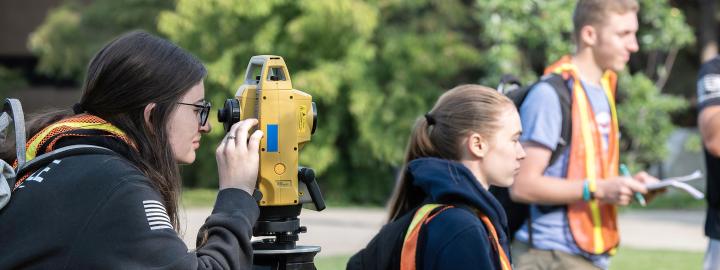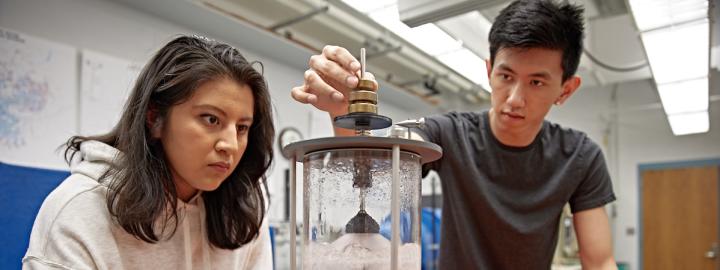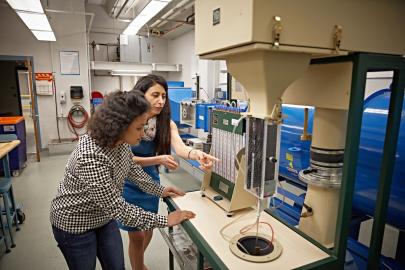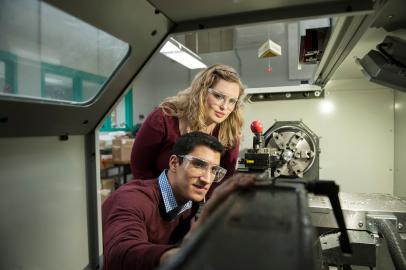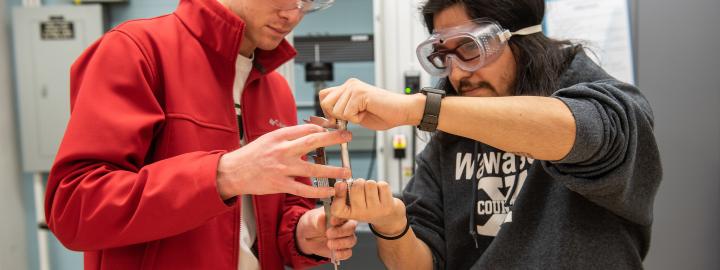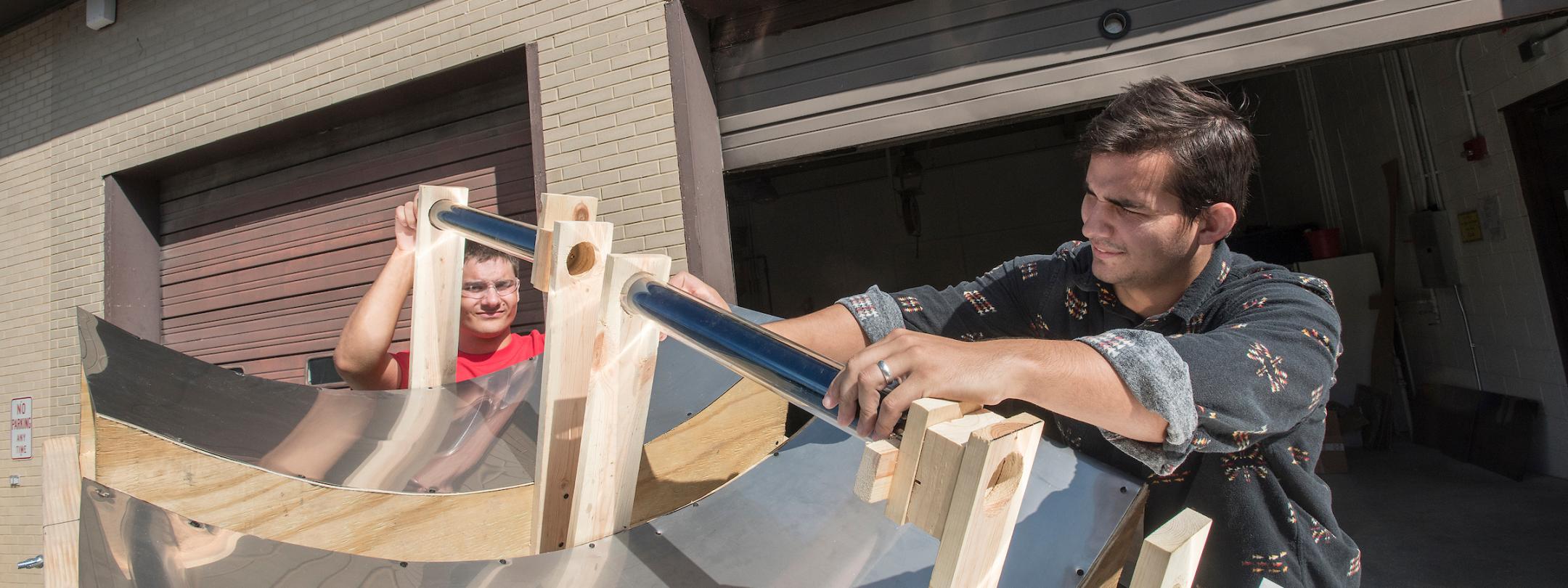
Civil and Mechanical Engineering Programs
Making improvements that matter—it’s the lifeblood of engineers.
Whether you’re pursuing a path in civil or mechanical engineering, your designs and solutions will have the power to change the world.
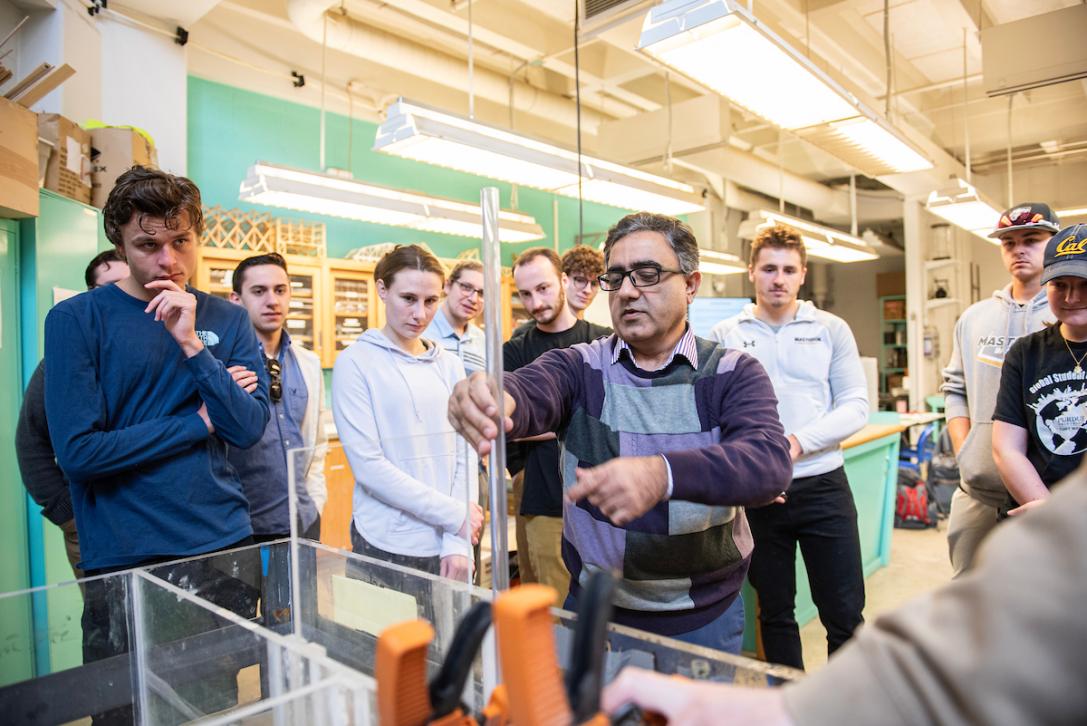
Mechanical Engineering Dual Degree (B.S.M.E., M.S.E.)
Designed for students who truly know what they want for their future, this innovative program will allow you to obtain a bachelor of science in mechanical engineering and a master of science in engineering simultaneously—and in just five years. You’ll save time, you’ll save money, and you’ll be on the path to success quicker than you ever thought possible.

Program
Highlights
Program Highlights
- The opportunity to work on teams designing, analyzing, and manufacturing complex engineering systems
- The ability to solve problems using logical, creative, and innovative approaches
- Support from the Mastodon community
- A prestigious Purdue degree
career and salary data
How far will you go?
General labor market and salary data are provided by Lightcast via O*NET and may not represent the outcomes experienced by Purdue Fort Wayne graduates in these programs. Purdue Fort Wayne graduates in these programs may earn salaries substantially different or less than the amounts listed. Salary and employment outcomes vary by geographic area, previous work experience, education, and opportunities for employment that are outside Purdue Fort Wayne’s control. Purdue Fort Wayne does not guarantee employment placement, salary level, or career advancement.
Student Learning Outcomes
Upon completion of this degree, students will be able to demonstrate the following learning outcomes:
- Identify, formulate, and solve complex engineering problems by applying principles of engineering, science, and mathematics
- Apply engineering design to produce solutions that meet specified needs with consideration of public health, safety, and welfare, as well as global, cultural, social, environmental, and economic factors
- Communicate effectively with a range of audiences
- Recognize ethical and professional responsibilities in engineering situations and make informed judgments, which must consider the impact of engineering solutions in global, economic, environmental, and societal contexts
- Function effectively on a team whose members together provide leadership, create collaborative and inclusive environments, establish goals, plan tasks, and meet objectives
- Develop and conduct appropriate experimentation, analyze and interpret data, and use engineering judgment to draw conclusions
- Acquire and apply new knowledge as needed using appropriate learning strategies
- Aerospace Engineer
- Automotive Engineer
- Biomedical Engineer
- Building or Construction Engineer
- Heating, Cooling, and Refrigeration Engineer
- Manufacturing Engineer
- Power Engineer
- Robotics Engineer
